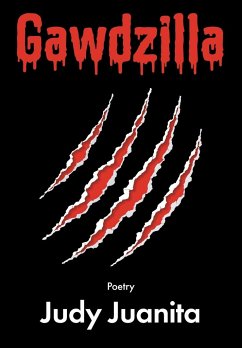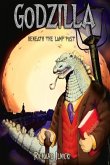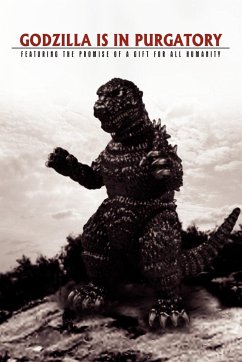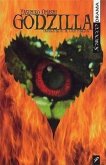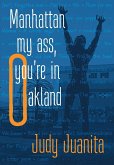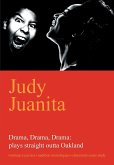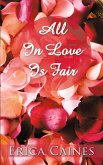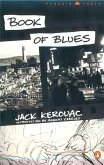This collection of poems examines race, marriage, family, abortion, and social changes since 1954 when Godzilla, the horror movie, and the Supreme Court ruling on integration, Brown v. Bd. of Ed, Topeka, Ks., occurred. The sixties, 70s, 80s, each get poetic treatment, as Godzilla sequels came out. Free verse, haiku, tercets, soliloquies, dramatic monologues, found and prose poems put racism, oppression, sexism, homelessness, body dismorphia, immigration, celebrity, and empire under the poetic lens. Like the movie monster that resurrects in movie after movie, systemic societal evils appear dormant while continuing to enormously impact daily lives. The poet utilizes public figures, including Lizzo, Richard Nixon, the Kardashians, Huey Newton, Rick James, Dave Chappelle, and Trayvon Martin, to show the contradictions and conflicts in society. A central theme is the questioning of a God insensitive to those in distress, including a bedraggled, homeless Jesus. Another theme is slavery, lynching, the business of slavery and refugee-ism. Throughout the book, the spelling moves from godzilla to the title's changed spelling, gawdzilla. Somber tones intersperse with humor, sarcasm, ridicule, and surprise as the poems expose Godzilla/Gawdzilla in the least of places. Poems have titles like "swimming towards godzilla, swimming from godzilla" (fleeing refugees), "lizzo fights godzilla" (body/weight), "when godzilla booted nixon out of the oval office" (the 1970s), "Barney, the gawdzilla-training toy," "gawdzilla births female orangutans"(Kardashians), "a prayer to godzilla," and "return of godzilla." The poems' narrative voices range from an aborted baby to a homeless truthteller, mirroring the intractable contradictions that have come to define American society. The poet is questioning existence throughout, often using the phrase "the dream of being" when death, abortion, or the genocide of slavery appear. A long prose poem at the end of the collection, "The Gun as Performance Poem," is both personal and historical. Juanita depicts the killing of Trayvon Martin: "One round point blank to the chest = a perfect exchange...The Gun as art and culture...The Gun as art form and genre...The Gun makes history...The Gun as steel metaphor carrying the human urge to dominate and lay waste to an enemy or perceived threat. Guns as import and export. Hollywood's Gun, its cinematic ordnance, is the United States' international calling card." Then, in this piece that was nominated for a Pushcart Prize in 2014, she traces her own history with guns, beginning with being a member of the Black Panther Party (BPP) in the sixties (she edited its newspaper). She shows the juxtaposition of the Black Arts Movement and its relation to the BPP. The poets and dramatists stand in stark counterpoint to the gun-toting revolutionary Panthers. She had to choose and joined the Panthers where she learned that "[t]he Gun was an actual weapon carried and maintained by party members. It was Art. It was Metaphor. It was loaded with meaning and death." The final poem invokes the front page of the New York Times with the twin obituaries of Huey P. Newton and Diana Vreeland of Vogue, each icon having died Aug. 22, 1989. The entire book traverses the huge waves of culture and politics that washed over the country in the 35 intervening years from 1954 to 1989. It equates the film monster Godzilla metaphorically with the evils of imperialism.
Hinweis: Dieser Artikel kann nur an eine deutsche Lieferadresse ausgeliefert werden.
Hinweis: Dieser Artikel kann nur an eine deutsche Lieferadresse ausgeliefert werden.

